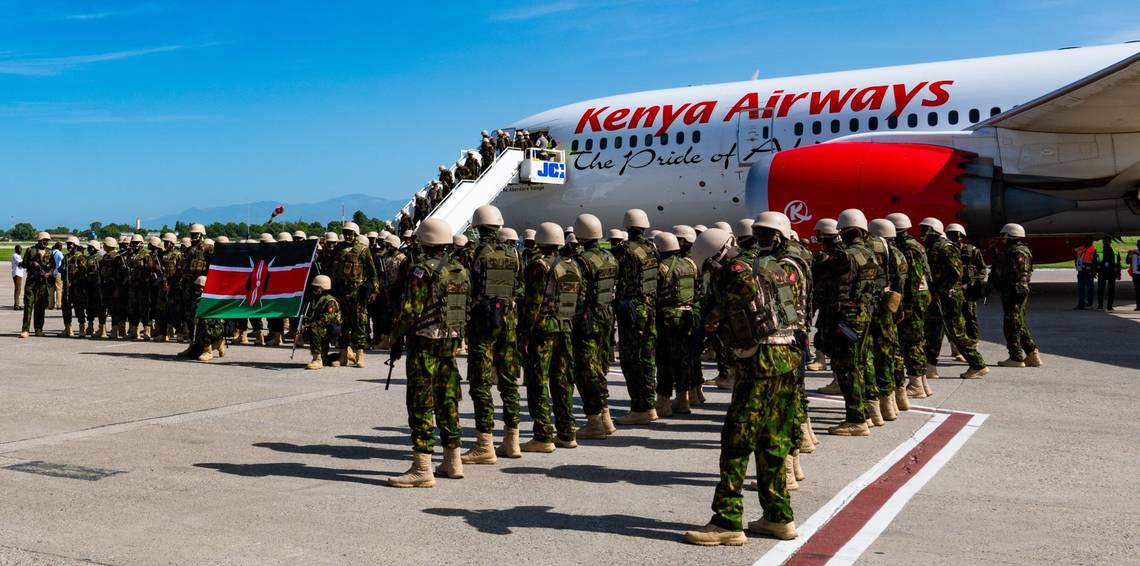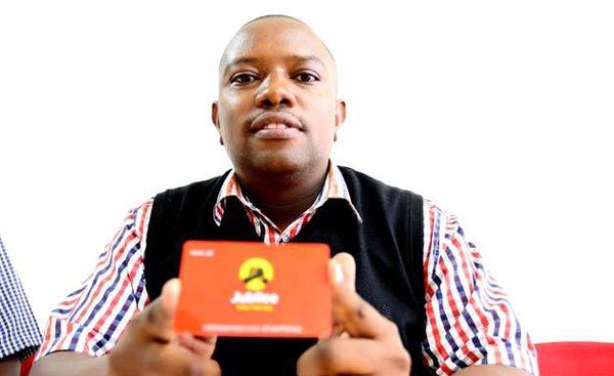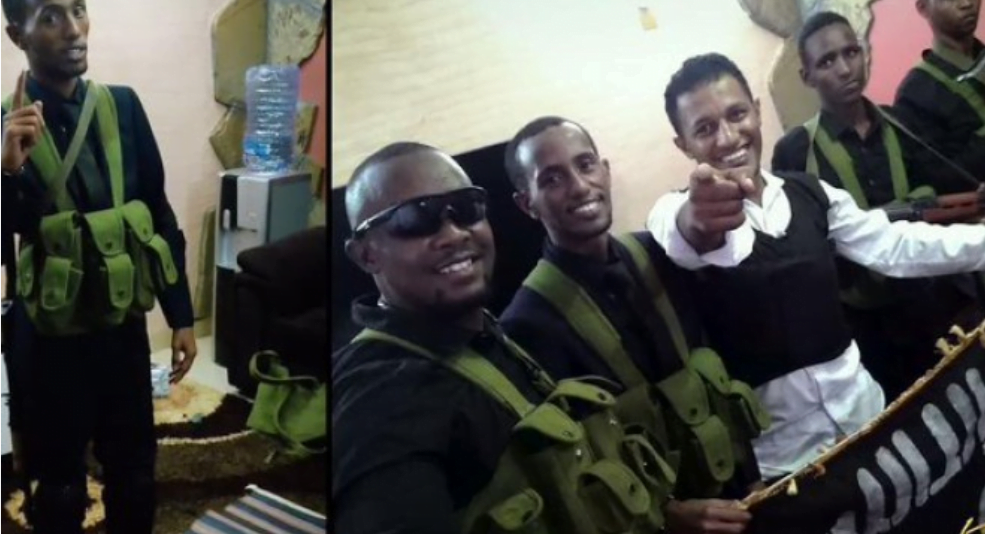The Kenya Police in Haiti are now grappling with growing frustration as citizens stage fierce protests against their own government.
Despite Kenya’s deployment of hundreds of officers to lead the multinational security support (MSS) mission, Haiti remains trapped in a cycle of violence and political instability.
The latest protests, held on Sunday, May 4, in the capital city, have brought fresh urgency to the crisis. Protestors are demanding the immediate resignation of Prime Minister Alix Didier Fils-Aimé and the transitional presidential council.
Many accuse them of failing to address the rampant gang violence that is strangling the country.
With Haiti’s elections hanging in limbo and violence escalating daily, questions are mounting about the effectiveness of the international mission and the future of the Kenya-led operation.

Kenya Police in Haiti Struggle as Violence Escalates
Kenya deployed at least 800 police officers to Haiti in June last year under the MSS mission. Their mandate was simple yet daunting: restore order and help dismantle the growing influence of armed gangs. However, nearly a year later, the mission’s impact appears limited.
In the past few months, gangs have tightened their grip on Haiti’s capital, Port-au-Prince. Businesses, banks, and even embassies in affluent neighborhoods like Petion-Ville are now under direct threat. The gangs are no longer just a security problem—they are a full-blown crisis, undermining Haiti’s economic and social stability.
“The city is dying because the council is not doing anything to make it better,” one protestor said. The growing sentiment among locals is that neither their government nor the foreign peacekeepers have been effective.
Haiti’s transitional government, which came into power less than a year ago, is now teetering. The delay in holding national elections has fueled public anger, leading to renewed street protests and violent clashes. This civil unrest not only endangers local civilians but also adds new risks for the Kenya Police in Haiti.
Mounting Casualties and Rising Anger
The human cost of the crisis is staggering. In just four months, gangs have killed at least 1,600 people and injured nearly 600 more.
According to the United Nations, 2024 has been Haiti’s deadliest year yet, with 5,600 deaths linked to gang violence and over a million people displaced.
Children are increasingly caught in the crossfire, with many being forcibly recruited into gangs. This disturbing trend is pushing Haiti further into a humanitarian disaster, making the work of Kenya’s police officers even more complex and dangerous.
For many Haitians, the deployment of the Kenya Police and the multinational forces raised hopes of change. Yet, the visible lack of progress is turning optimism into resentment.
The protests on May 4 are a loud message: citizens are fed up with both local leadership and international forces failing to deliver peace.

Future of the Haiti Mission in Doubt
With no clear victories and security worsening, the future of the Kenya Police mission in Haiti is under serious scrutiny. Although the mission has received solid backing from the United States and the United Nations, its results have fallen short of expectations.
Some Kenyan officers are expected to return home later this year. However, there’s no confirmed plan on whether Kenya will extend or alter its involvement. What is clear is that the mission’s end date is approaching fast, and its legacy may be marked more by frustration than success.
For now, Kenyan police and their international partners remain on high alert. They are tasked with not only fighting the gangs but also managing an increasingly volatile civilian population. It’s a double challenge that tests both their training and resolve.
The coming months will be critical in determining whether the Kenya Police in Haiti can turn things around or if the mission will go down as another failed attempt at peacekeeping in a nation desperate for relief.











































